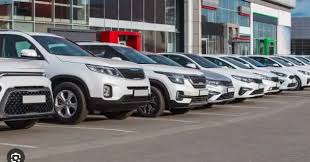The Nigerian automotive industry is in crisis, with dealers lamenting the near-collapse of car sales due to soaring vehicle prices and lack of supportive government policies. Automobile dealers say prices have more than quadrupled in the past eight years, moving from about N18 million for a mid-size SUV in 2016 to as much as N80 million in 2024. This sharp increase has priced many middle-income Nigerians out of the market and significantly reduced the number of buyers.
President of the Automobile, Boatyards, Transport Equipment and Allied Employers of Nigeria (AAABTEAEN), Kunle Jaiyesimi, raised the alarm during an interview, expressing deep concern about the shrinking customer base and poor government engagement. Jaiyesimi, who is also the Deputy Managing Director of CFAO Motors, said the auto market is suffering as Nigerians can no longer afford new vehicles, and there’s no available consumer credit to support potential buyers.
“Eight years ago, you could get a mid-size SUV for N18 million. Today, that same car costs over N80 million, and there’s no consumer financing to match the rise. The market has collapsed,” Jaiyesimi said.
He blamed the situation partly on Nigeria’s auto policy, which was introduced over a decade ago but has failed to support local investors and car buyers. According to him, many auto businesses have been forced to reduce operations because of poor demand. He noted that before the downturn, some dealers were selling up to 150 cars monthly, but in 2023, total new vehicle sales barely crossed 18,000 units—most of them bought by government agencies.
Jaiyesimi also criticised government officials for not engaging with industry stakeholders. He cited the West Africa Automotive Show 2025 in Lagos as an example, where none of the key government figures, including ministers or the Director-General of the National Automotive Design and Development Council (NADDC), showed up. This lack of presence, according to him, sends a wrong signal to foreign and local investors.
He compared Nigeria’s sluggish progress with Ghana, a country that launched its automotive initiative later but now boasts of at least seven manufacturers and 15 vehicle brands. “Nigeria is still struggling to establish real local assembly plants,” he said.
Jaiyesimi also took issue with how Nigerian officials handle international engagements. He said government delegations often travel abroad to meet with foreign automakers like Toyota without including their Nigerian representatives. This practice, he said, sidelines local players and undermines confidence in the domestic industry.
On financing, he recalled that industry players had recommended a 35 per cent levy on fully built imported cars to fund vehicle credit schemes for Nigerians. “If that plan had been followed, the fund would have grown to more than N200 billion by now,” he stated. Despite these setbacks, he acknowledged the N20 billion vehicle credit initiative announced by President Bola Tinubu’s administration as a positive move.
Meanwhile, President of the Auto Spare Parts and Machinery Dealers Association (ASPMDA), Ngozi Emechebe, also weighed in, stressing the importance of spare part availability, especially as Nigeria looks to switch from petrol to gas-powered vehicles.
“If the government is serious about gas-powered vehicles, then gas must be available. You can’t convert vehicles when the fuel alternative doesn’t exist in the market,” Emechebe said.
He also spoke about the need for Nigeria to revive its local parts manufacturing sector, noting that in the 1990s, about 50 per cent of vehicle parts were made locally. “Now, we import almost everything,” he said. Emechebe called on local manufacturers like Innoson and Nord to improve spare part distribution and allow dealers to freely import parts when necessary. “People must be able to find the parts they need. Accessibility is key,” he added.
Industry stakeholders are now calling on the Federal Government to expand consumer financing, update and enforce auto policies, and ensure that local players are included in international discussions. They say urgent action is needed to prevent further decline in Nigeria’s once-promising automotive industry.
